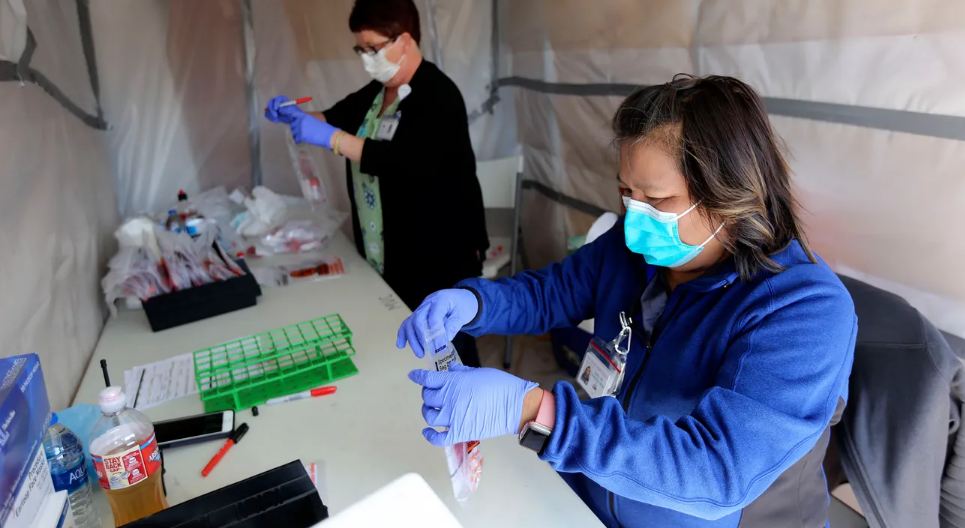GREAT FALLS, Mont. – Nathaniel Campbell has already dipped into his savings but isn’t sure how much longer his reserves will be able to support him.
Furloughed from the Arizona casino he helps manage, the Tonto Apache Tribe member is putting much of his faith in the federal government.
Campbell and members of Native American tribes across the country are relying on Washington to offer a financial lifeline as they battle the economic and human tolls of the coronavirus pandemic. But despite billions earmarked for tribes, members of Indian Country have been met with red tape, roadblocks and new hurdles that have led to delays and deep-rooted feelings of uncertainty.
Tribes are having to wait for money to funnel through layers of federal agencies before it reaches them. And the agencies tasked with helping them are already chronically underfunded.
Despite language in the legislation meant to allow tribes access to a small business loan program called the Paycheck Protection Program, tribes that rely on income from casinos to function were unable to apply for loans because of what lawmakers say was a drafting error in the legislation. Hours after USA TODAY published this story, the SBA updated guidance allowing tribal casinos access to these loans.
Campbell’s tribe in Payson, Arizona, like many Native American tribes across U.S. Indian Country – federally defined areas that encompass Native American communities across the U.S. – have been hit hard by the coronavirus. Social distancing restrictions have decimated incomes from casinos, the financial pain rippling through tribes while the number of infections and deaths skyrocket, reaching grim numbers that outpace some states.
Unlike states and local governments, Indian Country areas are unable to collect taxes, and instead many rely on the income from casinos to pay for everything from their police departments to public health programs that have become crucial in fighting the coronavirus. “We all knew things were going on in the world with the virus, but when it hits home, and it affects your life and your community, I just thought, ‘Wow this is really big,’” said Campbell, 52, who is now using what money he has in savings to also support his parents.
“We’re doing our best to comply with what has been put in place, practicing social distancing, washing our hands and sheltering in place. But now we need the federal government to step up and say, ‘We will back you up.’ We need them to stop playing these political games with our lives.” .
‘Smallpox 2020’:Blackfeet Nation fears impact of COVID-19 in Montana
Minorities being hit harder by COVID-19:Black people dying from coronavirus at much higher rates in cities across the USA


